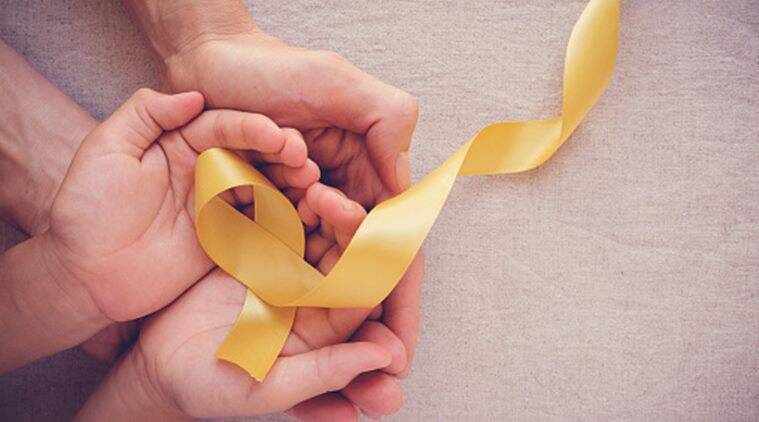15th Feb will be celebrated as International Childhood Cancer Day 2022. This year the theme is “through your hands” meaning achieving the best care through your participation. It’s about getting ‘Right care at the right time by the right team.’
The diagnosis of cancer in their child is the most devastating news for any parent. Hence, it becomes important to be aware of certain signs and symptoms which can help in early diagnosis.
I would like to share a story of one of my patients. A 14-year-old boy just started feeling unwell, had no fever, only body ache, and was not eating well. His mother had an intuition that he was not himself and she brought this to the notice of the paediatrician. His paediatrician thoroughly examined the child but there were no alarming signs except he was looking weak. He reassured the mother and advised a few blood tests, and to everyone`s surprise, there were abnormal cells seen.
Fortunately, this was early-stage blood cancer and the child received treatment started on time and is now doing well.
This incident only highlights the fact that alert parents and astute paediatricians can help in early diagnosis. The incidence of childhood cancer is on the rise, the foremost reason is an increase in the awareness and facilities available for correct diagnosis.
As per WHO approximately 400000 cases happen each year in the age group of 0-19 years. More than 80% of these cases occur in low- and middle-income countries. In India, around 50 – 75 thousand cases happen each year. The good news is that now childhood cancers are highly curable and many lives can be saved with timely protocol-based treatments.
In western countries around 90% of children afflicted with cancer are saved but in resource limited countries like ours, only 20% of these children survive. The foremost reason is lack of awareness, followed by the delayed diagnosis and limited availability of facilities.
WHO has recognized that the most important factor for survival after childhood cancer is the place they are born. If a child with cancer is a resident of a place with good medical facilities, there is a high chance that he will be a cancer survivor and vice versa. A national plan and strong political commitment are required to meet the needs of children suffering from cancer so that they can survive and thrive.
Certain things can be done during pregnancy to curb the incidence of cancer.
Foremost is good nutrition. Malnourished children have the worst survival rates. By good nutrition means foods rich in vitamins and antioxidants and minerals. These few simple implements would make a large difference.
The common cancers in children are
- Acute leukaemia (blood cancers)
- Brain Cancer
- Lymphomas
- Wilms tumour
- Neuroblastomas
- Bone sarcomas
- Retinoblastomas
Prevention of childhood cancer is not possible as they are not related to lifestyle or environmental changes. Early diagnosis and awareness are the only keys to better survival.
What Should A Parent Watch Out For
- Any kind of unexplained fever not responding to antibiotics
- Changes in the behaviour of the child
- Not taking interest in surroundings
- Losing weight, loss of appetite
- Body aches
- Bleeding spots on the body should be investigated thoroughly
- A painless lump growing in any part of the body should also be brought to the notice of the doctor. Any vomiting which brings about relief in headache
- Newly developed deviation of eyeballs (Squint)
- Abnormal walk
- Changes in behaviour could be an alert towards brain cancer
- Any abdominal distension or lump in the abdomen
- Difficulty in walking
- Backache causing restriction of movements
- Passing of reddish urine again warrants proper investigations
- Any changes in eating patterns like eating less, no interest in food
These are a few red flag signs which should be kept in mind and should be investigated thoroughly.
If you have any questions that you need to be answered, send them to us and we will get them answered by an expert.



















